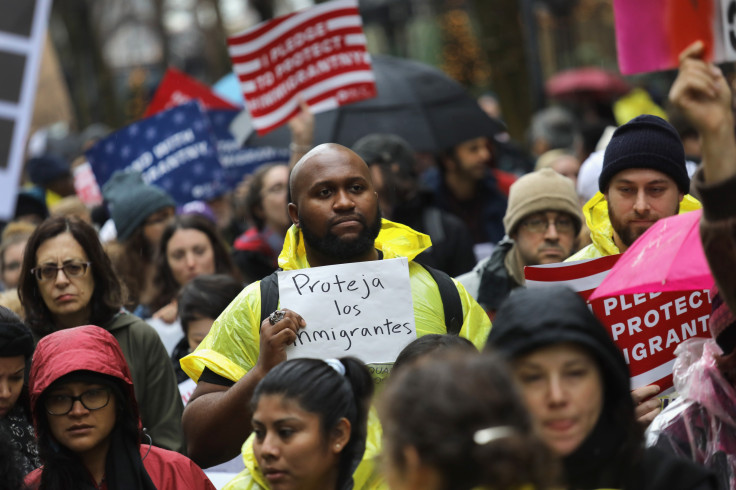
In 2024, state legislatures across the United States saw a significant increase in the introduction of anti-immigrant bills, reflecting a 77% rise from the previous year. In all, a total of 233 such proposals were introduced, marking the peak of a trend that has seen a 357% surge in anti-immigrant legislation since 2020, according to a new report from the League of United Latin American Citizens (LULAC)
According to the sprawling analysis which looked into legislation from 2020 to the current year, proposals focused primarily on enhancing border security, increasing law enforcement cooperation with federal immigration authorities, and countering sanctuary policies. As the report reads:
"Restrictionist states pass legislation to create a hostile environment, deterring undocumented immigrants from settling within their borders. Examples of restrictionist legislation include requiring full cooperation with the U.S. Immigration and Customs Enforcement (ICE) and U.S. Customs and Border Protection (CBP) detainer requests, banning undocumented students from attending public colleges and universities, and criminalizing the presence of an undocumented person in a state."
Between the 2021-2022 and 2023-2024 legislative sessions, the number of anti-immigrant proposals more than doubled. These proposals, often targeting the estimated 11.2 million undocumented immigrants in the U.S., frequently focus on Latino communities, which make up 66% of this population.
Governor Greg Abbott of Texas played a significant role in this trend with his Operation Lone Star initiative launched in 2021 to bolster border security. By 2024, Abbott's actions had intensified, with the introduction of additional measures such as razor wire fencing and floating barriers. These actions were supported by 16 states, which introduced 36 proposals aimed at strengthening their own border security efforts and supporting Texas' initiatives.
The push for these measures, however, comes despite a relatively low success rate for anti-immigrant proposals. Of the 561 proposals tracked from 2020 to 2024, only 13.2% were enacted into law. This lower enactment rate compared to other legislative proposals suggests that many of these bills serve more as symbolic gestures than as serious legislative efforts.
Some states have seen efforts to criminalize undocumented status or restrict access to public benefits for undocumented individuals. Proposals in states like Iowa, Louisiana, and Kansas sought to impose criminal penalties on undocumented immigrants, while others aimed to invalidate out-of-state driver's licenses issued to undocumented individuals.
Despite the increase in proposals, there has been significant pushback from some state governors, particularly in Democratic-led states. Vetoes by governors in states like Arizona, North Carolina, and Wisconsin have prevented the implementation of some of the more extreme measures, indicating a continued battle over immigration policy at the state level.
The report also makes a point to signal out that the surge in anti-immigrant legislation coincides with the the volatile discourse of Republican presidential candidate Donald Trump who just last week suggested his widespread deportation operation could turn into a "bloody story."
"The divisive rhetoric of former President Trump has intensified a more aggressive campaign against immigrants and Latinos, regardless of their legal status. Consequently, millions of undocumented immigrants are facing increasing villainization and adverse effects as the number of anti-immigrant proposals continues to rise at an alarming rate."
© 2025 Latin Times. All rights reserved. Do not reproduce without permission.





